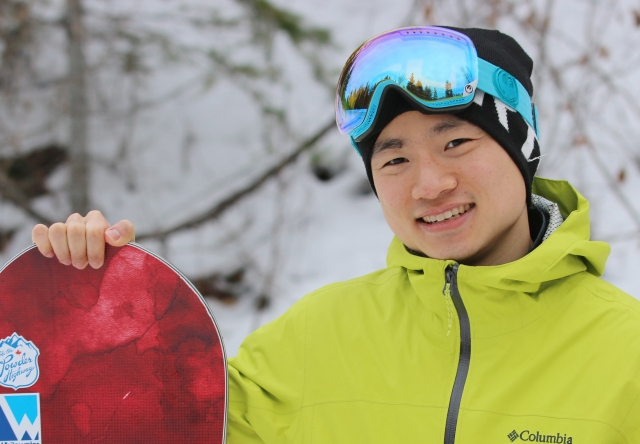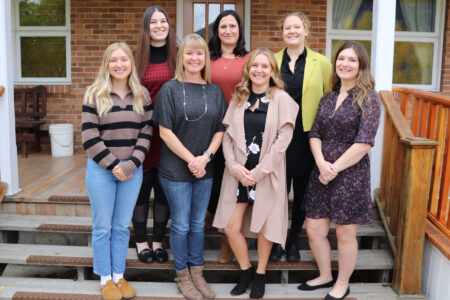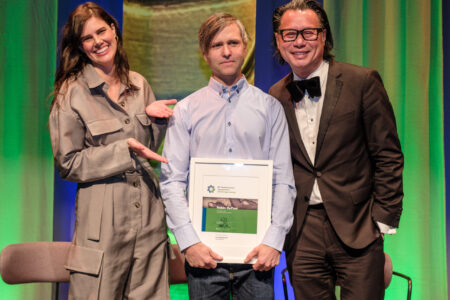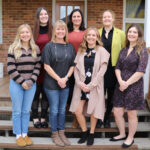Selkirk College and the Ski Industry -- in China
Selkirk College Connects to China’s Massive Ski Industry
Bob Falle doesn’t mind seeing his students daydream about skiing.
“You walk into the classroom, and if it’s snowing outside, you can see the students looking out the window, dreaming the same thing,” says Falle, the Chair of the School of Hospitality & Tourism at Selkirk College. “They’re thinking about being on the slopes, running a business. You can see the passion they have for the industry, for what their role could be in it.”
Now in its 35th year, the Ski Resort Operations & Management (SROAM) Program has been building connections with industry in Canada and around the world. Increasingly, SROAM is attracting students from other countries to its home in Nelson.
Yue “Max” Liang is one of 10 international students in the SROAM program and a relative newcomer to the world of winter sport. He remembers how lousy winters were growing up in Beijing.
“It is too cold to stay outside, it is grey, and snow is rare,” says the 26-year-old. “People didn’t do much outside the in winter. I just hated the cold.”
Then one day a friend showed him a snowboarding video and the two went to a small ski hill near the city to give the sport a try.
“There were very few people on the hill, hardly any snowboarders,” Liang recalls.
It was a nice break from the crowded city. A day on the slopes, the fun and fresh air, sold him on the sport.
“I came home thinking, ‘I want to do more of this,’” he says.
It didn’t take long for Liang’s enthusiasm to turn to thoughts of a career in the industry. He already had a master’s degree in engineering, but that future just didn’t appeal to him.
“I decided I wanted to come to Canada, there was the clean environment, low population and good ski resorts,” he says. “I did some research looking at colleges and universities when I found Selkirk’s Ski Resort Operations & Management Program. I thought, ‘oh, this is what I want to try’.”
In recent years, the two-year program has been attracting more experienced, higher-educated, mature students like Liang, says Falle. Many are looking for a change or a new direction. About one-third of the program’s 30 students are international, arriving from places as diverse as Brazil, Chile, Ukraine, Australia and Europe.
“It’s exciting to have students like Max here,” says Falle. “They bring such energy and drive to the program, a desire to succeed.
“They see it’s both a business program—with courses in accounting, leadership, human resources, etc.—and it has ski-industry specific elements like snow-making, ski lift maintenance, heli- and cat-skiing, ski school and events management. That really appeals to people looking for a solid grounding in the industry.”
The solid grounding SROAM provides is just what ski resorts and tour operators need, says one industry spokesman.
“This industry suffers from an ongoing labour shortage of skilled workers, especially in good years, like this one,” says David Lynn, the CEO of the Canada West Ski Area Association. “Selkirk’s program is an important partner in providing a much-needed stream of young people educated for management skills.”
Lynn says the SROAM program has played a “pivotal” role in building relationships with Chinese resorts and Canadian companies looking to develop inroads in that country.
And the potential for growth in the industry in China is staggering. The 2012 China Ski Study (a government and industry-sponsored survey) estimates that in 1996 there were just 10,000 skiers in China. In 2010 the number jumps to more than five million. From a handful of resorts in 1980, the country now has more than 75—many of them massive, multi-billion dollar projects. With China now set to host the 2022 Winter Olympics, the sport’s popularity is only expected to grow.
That growth, however, has also created significant challenges. There are critical shortages in trained resort managers and many workers remain seasonal hires, with little or no training in hospitality service.
“Many people in China now have money and the time for leisure,” says Falle. “They know what service levels they want. But if they don’t have an enjoyable time skiing or snowboarding they are going to try it once, then go on to do something else.”
Falle says the school is working with industry connections in China to increase opportunities for partnerships with resorts for training and business development. He’s helped organize a trade delegation to China in February 2016 to build connections between Chinese resort operators and Canadian companies looking for business in the booming—but complex—market.

























